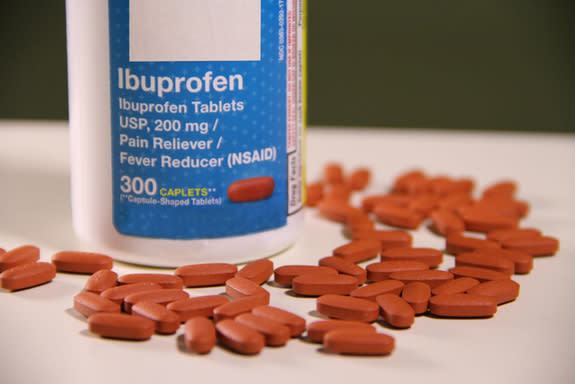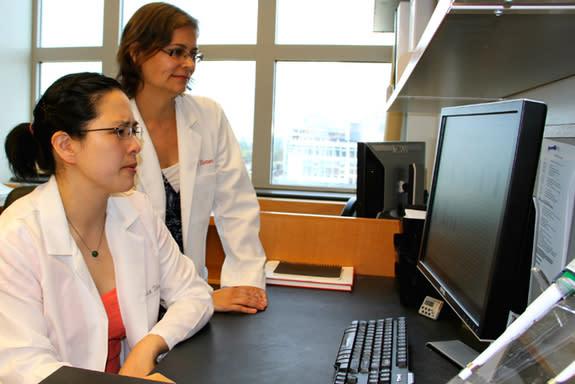Mouse Study: Ibuprofen May Make Old Lungs Look Young
Dr. Joanne Turner, associate professor of microbial infection and immunity at The Ohio State University Wexner Medical Center, contributed this article to Live Science's Expert Voices: Op-Ed & Insights.
Aging is associated with changes in the human immune system that make us more susceptible to become ill from infections. Recent work form my lab has suggested that a common over-the-counter medication, ibuprofen, can reverse some of the normal aging that is seen in our immune system.
Ibuprofen belongs to a class of medications called nonsteroidal anti-inflammatory drugs (NSAIDs). These drugs are commonly used for the management of mild to moderate pain, fever and inflammation.
Research conducted by my team at The Ohio State University Wexner Medical Center using old mice showed that the lungs become more inflamed with age. Cells isolated from the lungs had more gene expression for pro-inflammatory pathways, as well as an increase in pro-inflammatory proteins within the lungs themselves. [How We Can Control Aging (Op-Ed )]
We fed old mice a diet supplemented with ibuprofen and found that this simple change could lower lung inflammation. The inflammatory proteins in cells from old mice resembled levels in young mice. Essentially, ibuprofen made the lungs of old mice look young.
We focused on the lungs, as the elderly are more susceptible to many lung infections such as influenza and tuberculosis (TB), the infectious disease that my research group studies. We have previously shown that when exposed to TB, old mice are unable to control infection as well as young mice.
Our study represents a rare investigation of inflammation in the aging lung. The changes that we saw in the lung after ibuprofen treatment indicate that if we can reverse the inflammatory lung environment in old age, we may be able to reduce the incidence of infection, and infection-associated illness, in the elderly.
While our study looked at cultured cells from the lungs of old mice, we believe that this may represent the lungs of elderly humans because we find the same inflammatory signature in lung fluids from elderly people. Therefore, we believe that further investigations are warranted. My lab is currently testing whether ibuprofen can alter how old mice control TB infection.
Though this line of work might someday support the use of ibuprofen as an adjunct therapy for elderly people with TB, I want to emphasize that my colleagues and I are not recommending that people start using the drug to reduce lung inflammation. Inflammation can be reduced in more natural ways such as being lean, eating well and exercising — essentially, maintaining a healthy lifestyle into old age .
Follow all of the Expert Voices issues and debates — and become part of the discussion — on Facebook, Twitter Google+. The views expressed are those of the author and do not necessarily reflect the views of the publisher. This version of the article was originally published on Live Science.
Frailty Is a Medical Condition, Not an Inevitable Result of Aging (Op-Ed)
Daily Ibuprofen Reduces Lung Inflammation In Older Mice | Video
Copyright 2014 LiveScience, a TechMediaNetwork company. All rights reserved. This material may not be published, broadcast, rewritten or redistributed.



